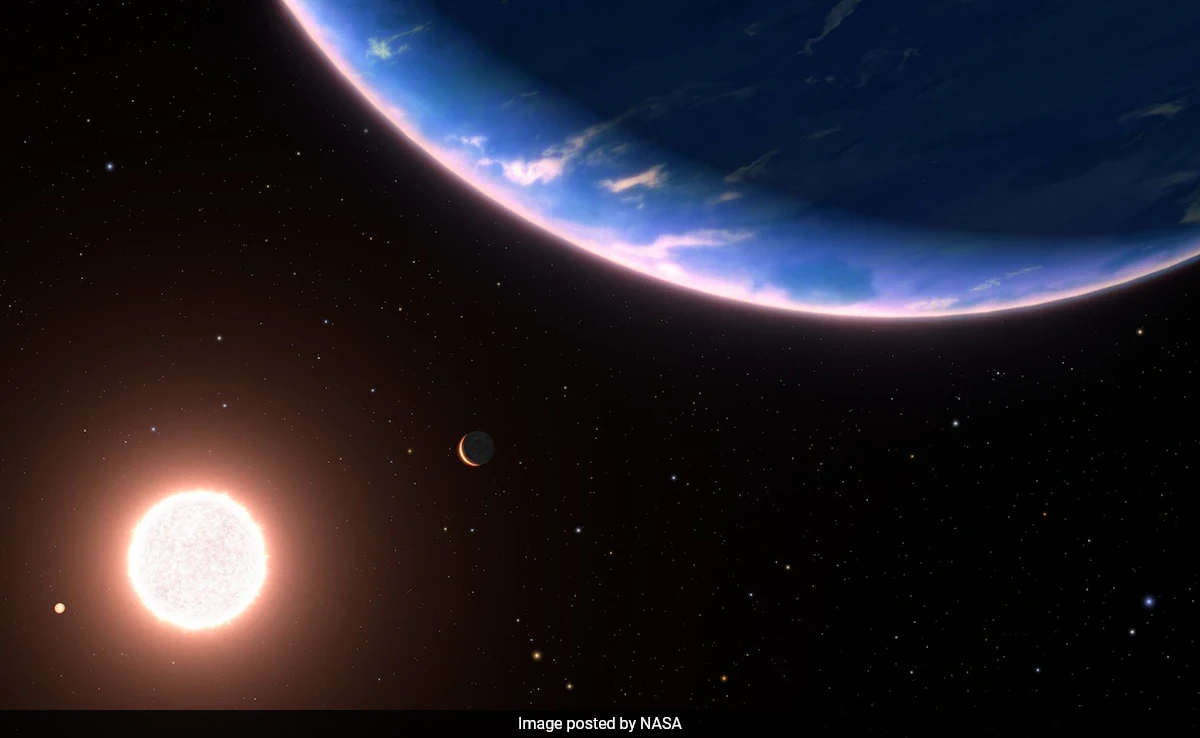Technology
NASAs Hubble Telescope Finds Water Vapor in the Atmosphere of a Small Exoplanet


By - 28 Jan 2024 11:58 PM
A tiny, scorching exoplanet located 97 light-years from Earth has water molecules in its atmosphere, according to research done by astronomers using NASA's Hubble Space Telescope. The planet, known as GJ 9827d, may serve as an example of prospective planets with atmospheres rich in water found elsewhere in our galaxy. Its diameter is about twice that of Earth.
"This would be the first time that we can directly show through atmospheric detection, that these planets with water-rich atmospheres can exist around other stars," said team member Bjorn Benneke of the Trottier Institute for Research on Exoplanets at Universite de Montreal. "This is an important step toward determining the prevalence and diversity of atmospheres on rocky planets"Water on a planet this small is a landmark discovery," said Laura Kreidberg, a co-principal investigator from Heidelberg, Germany's Max Planck Institute for Astronomy. "It pushes closer than ever to characterizing truly Earth-like worlds."Life depends on water, but the exoplanet's extreme heat would likely turn any water-rich atmosphere into steam, making it unlikely that any kind of life could exist there. Astronomers still don't know everything there is to know about the unusual atmosphere of this world.
The study's conclusions were presented in a report that The Astrophysical Journal Letters published on Thursday.
Because the host star evaporated GJ 9827d's atmosphere, the research team is currently unable to determine whether Hubble detected water vapor traces within a puffy, hydrogen-rich atmosphere or whether the planet has a water-rich atmosphere."Our observing program was specifically designed to look for water vapor as well as detect molecules in the planet's atmosphere. It is overseen by principal investigator Ian Crossfield of Kansas University in Lawrence, Kansas. "Any outcome would be fascinating, regardless of whether water vapor is the predominant species or merely a minor species in an atmosphere dominated by hydrogen," stated Pierre-Alexis Roy, the primary author of the scientific paper from Universite de Montréal's Trottier Institute for Research on Exoplanets.
"We had not yet been able to directly detect the atmosphere of a planet this small. And we're now gradually implementing this regime," Benneke continued. "At some point, as we study smaller planets, there must be a transition where there's no more hydrogen on these small worlds, and they have atmospheres more like Venus (which is dominated by carbon dioxide)."
























